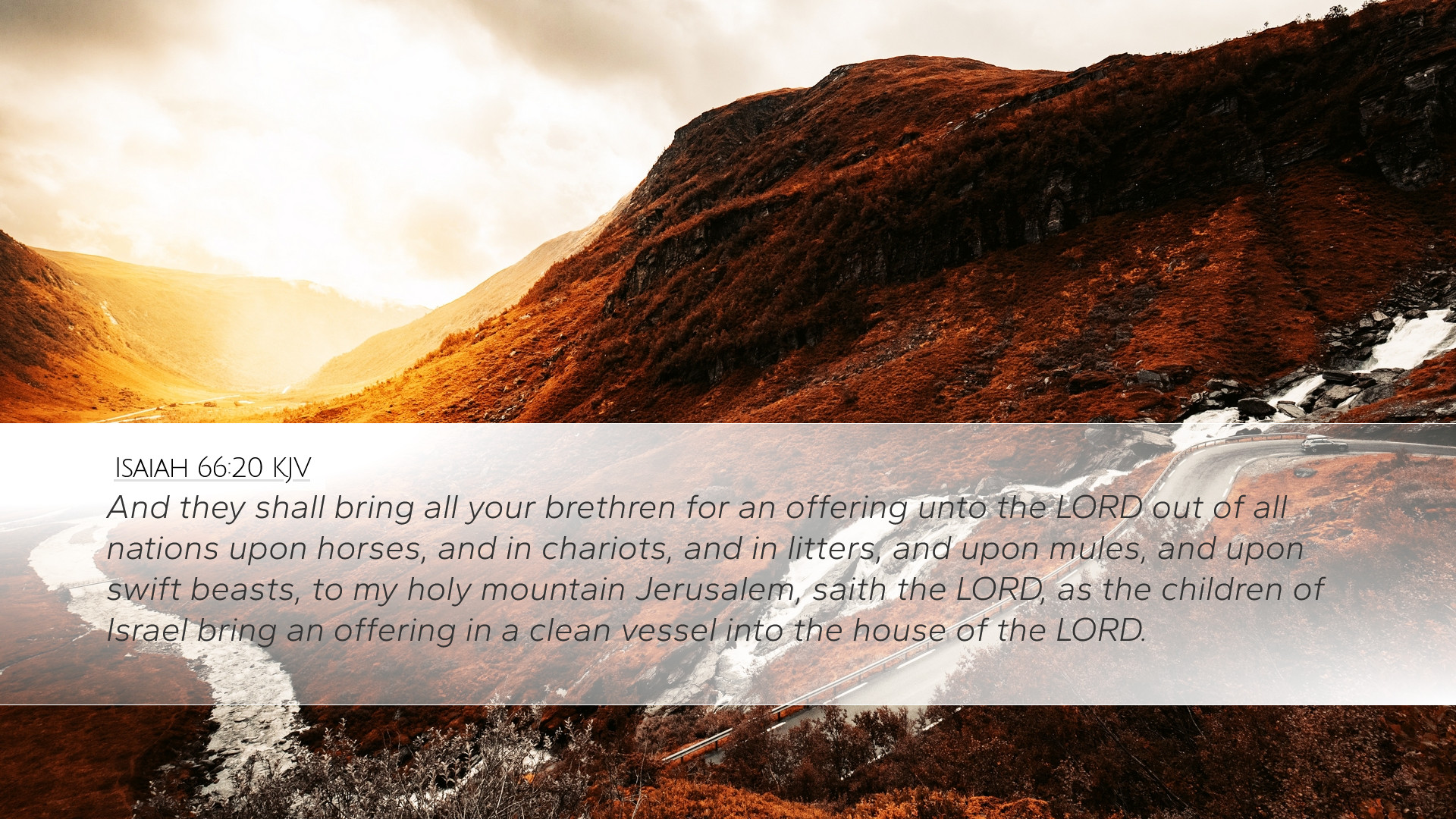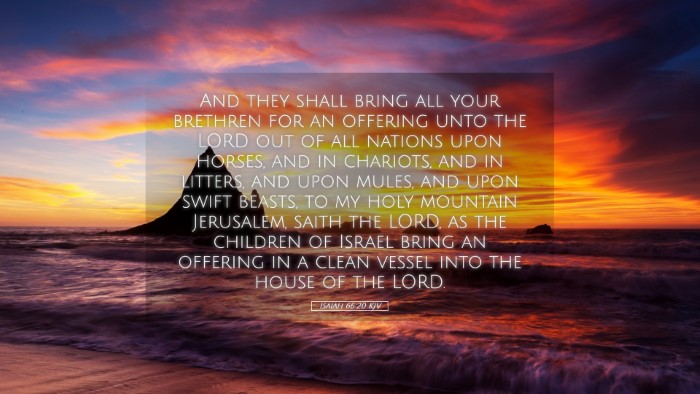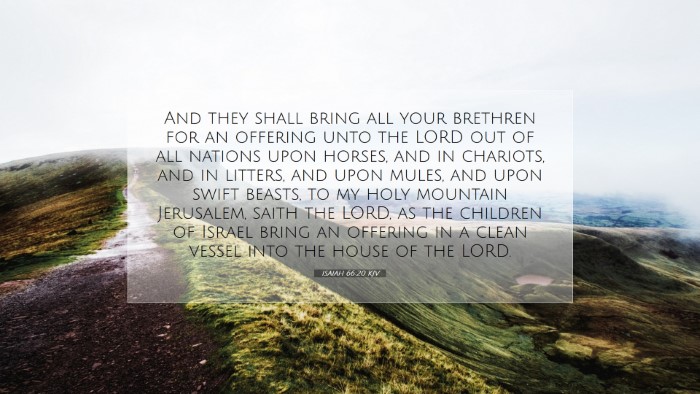Commentary on Isaiah 66:20
Text of Isaiah 66:20 (KJV): "And they shall bring all your brethren for an offering unto the Lord out of all nations upon horses, and in chariots, and in litters, and upon mules, and upon swift beasts, to my holy mountain Jerusalem, saith the Lord, as the children of Israel bring an offering in a clean vessel into the house of the Lord."
Introduction
The book of Isaiah, rich in prophecy and vivid imagery, concludes with a promise of restoration and gathering. This final chapter reveals the ultimate plan of God to bring His people together, emphasizing both the inclusivity of His grace and the fervor of His holiness.
Context and Background
This passage falls within a larger prophetic vision concerning the new heavens and new earth, a theme prevalent throughout biblical eschatology. Isaiah 66 serves as a conclusion to the entire prophetic book, reiterating God’s judgment against sin while simultaneously offering hope for future glory. It speaks to the people of Israel, depicting the gathering of nations as a divine act of restoration.
Analysis of Key Elements
1. The Gathering of Nations:
Isaiah 66:20 highlights God's intention to draw His people from all nations. This is a significant departure from traditional Jewish exclusivity, suggesting that God's plan includes Gentiles as potential worshippers. Matthew Henry points out that this gathering signifies the universality of salvation and the call to worship transcending ethnic boundaries.
2. Symbolic Transport:
The various modes of transportation mentioned—horses, chariots, mules—suggest both speed and dignity in the journey toward Jerusalem. Adam Clarke notes that this portrayal emphasizes the nobility of the pilgrims as they come to worship God in His holy city. The diversity of animals symbolizes the different nations converging towards a common purpose, reflecting the unity found in Christ.
3. The Concept of Offering:
References to "offering" suggest an act of devotion, drawing parallels with the sacrificial system in the Old Covenant. Albert Barnes comments that the "clean vessel" represents purity and appropriateness in coming before the Lord, indicating that the offerings from these nations will be presented in holiness, akin to the offerings made by the Jews before the holy presence of God.
4. The Holy Mountain:
The phrase "my holy mountain Jerusalem" alludes to Zion, symbolizing God's presence among His people. This mountain is not simply geographical but represents the spiritual height and purity associated with divine worship. It embodies the hope of believers—both ancient and modern—that they will ultimately dwell in the presence of God.
Theological Implications
The theological richness of Isaiah 66:20 extends into several core beliefs:
- Inclusivity of Salvation: This verse cements the truth that God's love and call to repentance extend beyond Israel to all nations. This prefigures the Great Commission in Matthew 28:19, where Jesus commands His followers to make disciples of all nations.
- Divine Restoration: The gathering signifies God's restorative plan. No matter how far the nations may wander, God's faithful pursuit offers hope of reconciliation.
- Worship as a Central Theme: Worship is portrayed as central to the human experience with God. The desire of nations to come and offer sacrifices communicates an innate yearning for divine connection.
Lessons for Modern Believers
Pastors and theologians can draw upon this verse to highlight several lessons for contemporary believers:
- Encouragement for Evangelism: As we think about our role in the world, Isaiah 66:20 encourages active participation in the Great Commission. Every believer has a role in inviting others to join the sacred journey to God.
- Emphasis on Holiness: Just as offerings must be presented in clean vessels, so must our lives reflect holiness. It challenges us to purify our hearts and intentions as we come before God.
- Hope in God’s Plan: The gathering of nations serves as a reminder of God's ultimate sovereignty and the fulfillment of His promises. In our chaotic world, we can find peace in knowing that God is orchestrating a profound and glorious future.
Conclusion
Isaiah 66:20 encapsulates the grandeur of God’s plan for humanity—a plan that transcends culture, geography, and epoch. It calls believers to reflect on their own posture before God and to engage actively in the mission of reaching all nations for His glory. As we look forward in anticipation of the day when all peoples will gather to worship before the throne, may we work diligently to reflect the heart of God in our outreach, worship, and lives.


